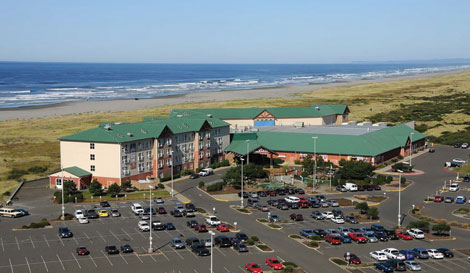Your eyes will thank you for learning about glaucoma
Every year, people make lists of things they will do to stay healthy and feel their best. But what about seeing your best, too?
Here, from the federal government’s National Eye Institute, are five things to know about glaucoma, a common eye disease:
- Glaucoma can cause vision loss and blindness, which can’t be reversed. Fluid builds up in the eye, causing pressure that can damage the optic nerve, which transfers visual images to your brain. But, you can save your vision with early detection and treatment.
- There are no early symptoms. No pain. No discomfort. No blurry vision. Only advanced glaucoma will affect your vision. Don’t wait for trouble before visiting your eye doctor.
- Nearly 3 million Americans have glaucoma. Half don’t know it. Lack of awareness and the absence of symptoms are preventing early detection.
- Some people are at higher risk than others — African-Americans over the age of 40, adults over 60 (especially Hispanics/Latinos), and people with a family history of glaucoma.
- Getting a comprehensive dilated eye exam is the only way to find out if you have glaucoma. During the exam, an eyecare professional places drops in your eyes to widen the pupils and looks for signs of the disease in the optic nerve.
The National Eye Institute has more information about glaucoma at www.nei.nih.gov/glaucoma.
With a balanced approach to preventative care, you can help keep your eyes and body healthy. For instance:
- Get an eye exam. An annual trip to the eye doctor is critical for the entire family to ensure healthy and sharp vision. But did you know your visit to the optometrist is important to your overall health too? A routine eye exam can potentially detect signs of chronic diseases like diabetes, high cholesterol, and more. Because many symptoms of health conditions often don’t appear until damage has occurred, eye exams are a powerful, preventative health tool to keep tabs on what’s happening in your body.
- An eye exam is a small investment for your eyes and body that’s well worth it, and a vision plan can help you keep the cost down. To search for a vision plan, visit vspdirect.com.
- Eat an eye-healthy diet. You probably know carrots are good for your eyes, but so are dark leafy greens such as spinach, kale and collard greens. Eat a diet rich in fruits and vegetables for a hefty punch of key vitamins, and a vision protecting-substance called lutein.
- Quit smoking (or never start). Smoking cigarettes has many well-known associated health risks, such as cardiovascular problems and cancer. Did you also know that smoking can contribute to the cause of many vision problems? Research links smoking to an increased risk of developing age-related macular degeneration, cataracts and optic nerve damage, all of which can lead to blindness.
- Maintain a healthy weight. Weight is a contributing factor for your overall health as well as your eyes. Conditions such as obesity and diabetes can lead to vision problems, like cataracts. By eating healthy portions and exercising regularly, you can reduce your risk.
- Protect eyes from blue light. Much of our days are spent with our faces glued to devices like smartphones, computers and televisions. Those digital screens emit high-energy blue light, which causes digital eye strain that leads to headaches, blurred vision, dry eyes, and even neck pain.
- Ask your eye doctor about the best options to help you reduce eye strain, including using lenses with coatings that reflect and absorb blue light. You can also follow the 20-20-20 rule: every 20 minutes, spend 20 seconds looking at something at least 20 feet away.
